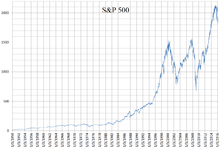Are you curious about the Japanese Yen? This fascinating currency is not just a piece of paper; it’s a symbol of Japan’s rich history and a key player in the global economy. In this comprehensive guide, we’ll dive deep into the world of the Yen, exploring its origins, significance, and how it affects your finances. Buckle up, because you’re about to uncover some surprising facts!
What is the Japanese Yen?
The Yen (¥) is the official currency of Japan, and it’s one of the most traded currencies in the world. Introduced in 1871, the Yen has undergone numerous changes, but it remains a cornerstone of Japan’s economy. With its unique symbol and distinct value, the Yen is more than just currency; it’s a representation of Japan’s culture and economic prowess.
The History of the Yen: From Past to Present
Did you know that the Yen was modeled after the French decimal system? When Japan adopted the Yen in the late 19th century, it aimed to modernize its economy and align itself with Western powers. The first Yen coins were made of silver, and the currency quickly gained acceptance both domestically and internationally.
The Evolution of the Yen
- 1871: The Yen is officially introduced.
- 1946: Post-World War II, the Yen is revalued to stabilize the economy.
- 1973: The Yen becomes a floating currency, allowing its value to fluctuate based on market conditions.
- 2020: The Yen remains a safe haven during global economic uncertainty.
Why is the Yen So Important?
The Yen is not just important for Japan; it plays a crucial role in the global economy. As one of the top three currencies traded in the foreign exchange market, the Yen influences international trade, investment, and economic policies. But what makes it so special?
1. A Safe Haven Currency
During times of economic uncertainty, investors flock to the Yen. Its stability and Japan’s strong economy make it a safe haven, which can lead to increased demand and a stronger Yen. This phenomenon can significantly impact global markets.
2. Impact on Global Trade
Japan is one of the largest exporters in the world, and the Yen’s value directly affects the prices of Japanese goods. A strong Yen can make exports more expensive, while a weak Yen can boost exports by making them cheaper for foreign buyers.
3. Influence on Forex Trading
The Yen is a major player in the forex market, often traded against the US Dollar (USD) and the Euro (EUR). Traders closely monitor the Yen’s fluctuations, as they can indicate broader economic trends and opportunities for profit.
How to Invest in the Yen
Are you interested in investing in the Yen? Here are some strategies to consider:
1. Forex Trading
Forex trading allows you to buy and sell currencies, including the Yen. By analyzing market trends and economic indicators, you can make informed decisions about when to trade.
2. Currency ETFs
Exchange-Traded Funds (ETFs) that focus on the Yen can provide exposure without the complexities of direct forex trading. These funds track the performance of the Yen against other currencies.
3. Japanese Stocks
Investing in Japanese companies can also be a way to gain exposure to the Yen. As these companies operate in Japan, their performance is often tied to the strength of the Yen.
Understanding Yen Exchange Rates
Exchange rates determine how much one currency is worth in relation to another. The Yen’s exchange rate can fluctuate based on various factors, including:
- Interest Rates: Higher interest rates in Japan can attract foreign investment, increasing demand for the Yen.
- Economic Indicators: Data such as GDP growth, unemployment rates, and inflation can influence the Yen’s value.
- Political Stability: A stable political environment in Japan can boost investor confidence and strengthen the Yen.
Common Myths About the Yen
There are many misconceptions about the Yen. Let’s debunk some of the most common myths:
Myth 1: The Yen is Always Weak
While the Yen has experienced periods of weakness, it has also been strong at various times. Its value fluctuates based on economic conditions and market sentiment.
Myth 2: You Can Only Invest in the Yen Through Forex
While forex trading is a popular method, there are other ways to invest in the Yen, such as ETFs and Japanese stocks.
Myth 3: The Yen is Only Relevant to Japan
The Yen’s influence extends beyond Japan, impacting global trade and investment strategies.
Future of the Yen: What Lies Ahead?
As we look to the future, the Yen will continue to play a vital role in the global economy. With ongoing economic challenges and geopolitical tensions, the Yen’s status as a safe haven currency may become even more pronounced. Investors should stay informed about market trends and economic indicators to navigate the ever-changing landscape.
Conclusion: The Yen’s Enduring Legacy
The Japanese Yen is more than just a currency; it’s a reflection of Japan’s history, culture, and economic strength. Whether you’re an investor, a traveler, or simply curious about the world of finance, understanding the Yen is essential. As you explore the intricacies of this fascinating currency, remember that knowledge is power. Stay informed, stay curious, and who knows? You might just find yourself making savvy financial decisions that could change your life!
Ready to Dive Deeper into the World of Finance?
Subscribe to our newsletter for the latest updates on currencies, investments, and economic trends!




